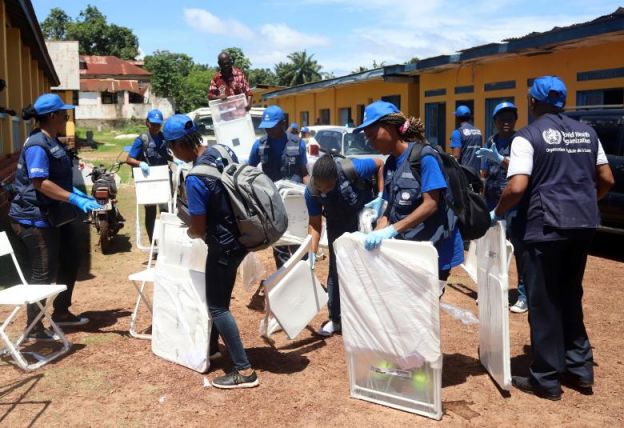Ebola outbreak in DRC prompts Catholic Church to suspend sacraments

The Catholic Church in the Democratic Republic of Congo has decided to suspend several sacraments due to the outbreak of the Ebola virus last month.
According to Religion News Service (RNS), the Church will not conduct baptism, confirmation, anointing or ordination in regions affected by the outbreak until further notice to prevent the spread of the virus.
The disease has reportedly killed at least 25 people since May 8, when the latest outbreak was confirmed. Official figures from the government say the number infected is at least 54 people over the past month.
The suspension of sacraments affects the Archdiocese of Mbandaka-Bikoro, where 650,000 of the region's population of 1.2 million are Catholics.
The bishops and priests within the diocese were instructed to administer Communion to the hand instead of the mouth of parishioners. The sign of peace, which is usually conveyed through handshakes and hugs, will now have to be expressed verbally.
In late May, one priest in the diocese of Mbandaka was quarantined after testing positive for the virus. Catholic Relief Services stated that the priest had contracted the disease while "taking care of someone who passed away."
Archbishop Fridolin Ambongo Besungu, apostolic administrator for the archdiocese, said that the infected priest has since recovered.
Some church officials have raised concern that traditional beliefs that consider the disease to be a curse could impede the efforts to prevent the spread of the virus. They explained that many residents believe that a curse caused the disease because they thought the victims had eaten stolen meat.
The Ebola virus spreads through contact with an infected person's bodily fluids, including saliva sweat and semen.
The church leaders have also warned locals that the virus can be spread from one species to another.
"The people are very poor and hunt wild animals for food. This has put many of them at risk. We are speaking strongly against (eating meat from wildlife)," Rev. Josue' Bulambo Lembe–Lembe, who leads the Church of Christ in Congo in Bukavu, told RNS.
Water cans and soap have been placed at entrances in the Bukavu church to help prevent the spread of the disease. The World Health Organization has started using a vaccine for the first time to help prevent further infections.
Catholic nonprofit Caritas said that it is "counting on the involvement of priests, men and women religious, teachers and health care workers" to help in the preventive efforts.
The Ebola virus claimed the lives of 11,300 out of 28,600 infected people when an outbreak occured in three West African countries between 2013 and 2016.











